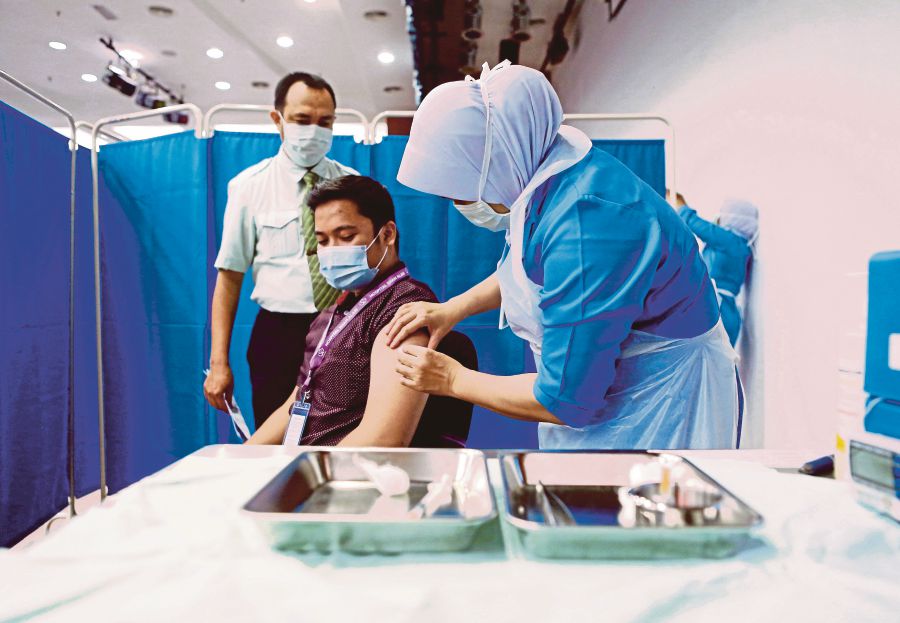M'sia Is Considering Vaccine 'Cocktails' To Boost Efficacy & Help Solve Supply Constraints
According to Khairy Jamaluddin, the government is closely monitoring the mix and match vaccines approach, with AstraZeneca as the first dose, and Pfizer–BioNTech as the second dose to improve efficacy against COVID-19 variants.
The idea that people in Malaysia could get "mix and match" vaccines against COVID-19 may soon become a reality if there's enough data to support such a vaccine 'cocktail', according to Khairy Jamaluddin
The National COVID-19 Immunisation Programme (PICK) coordinating minister touched on the cocktail vaccines approach, with AstraZeneca as the first dose, and Pfizer–BioNTech as the second dose while speaking at a webinar organised by the Oxford and Cambridge Society of Malaysia last night, 16 June.
Khairy was answering a question from one of the listeners who asked if Malaysia plans to give Pfizer as the second dose to those who have taken the AstraZeneca as the first dose, given the fact that it has an extremely low efficacy rate against the Beta variant of COVID-19, which is circulating in the country.
Addressing the question, the Science, Technology, and Innovation Minister said the proposal to employ the heterologous vaccination method — where two different vaccines are used to boost efficacy against different variants — was presented by Institute of Clinical Research (ICR) director Dr P Kalairasu last week.
Khairy said that while the government has some real-world data about heterologous vaccines, it doesn't want to make a rushed decision
"So we have some real-world data that we received from Germany about heterologous vaccinations using AstraZeneca for the first dose and Pfizer for the second dose, which has been shown to boost the neutralising antibodies and to be more effective against variants. We are watching this very closely. We don't want to make a quick decision on this before getting more data," the minister said.
He, however, appeared optimistic about the chances
"The data points are coming in for heterologous vaccinations," he said.
Khairy explained that once the technical working group is clear on that, they will advise the committee that he co-chairs with Health Minister Dr Adham Baba, following which the government will implement it.
"It is possible that we will end up doing this because a lot of countries are doing this to boost the neutralising antibodies, the efficacy or effectiveness. And also when you are facing vaccine supply constraints, you can mix things up and ensure the effects of the vaccine are still there," Khairy added.
A recent report stated that data from mix and match trials in Spain and the UK is very promising and suggests mix and match schedules may give higher antibody levels than two doses of a single vaccine
According to the report published in The Conversation last month, while there's no data yet on how effective the methods are in preventing COVID-19, they are likely to work well as the immune response is similar, or even better, compared with studies using the same vaccine as the first and second dose.
"This indicates they will work well in preventing disease," the report said.
Remember to limit your movement and keep practising physical distancing. Watch the latest update on the COVID-19 situation:
